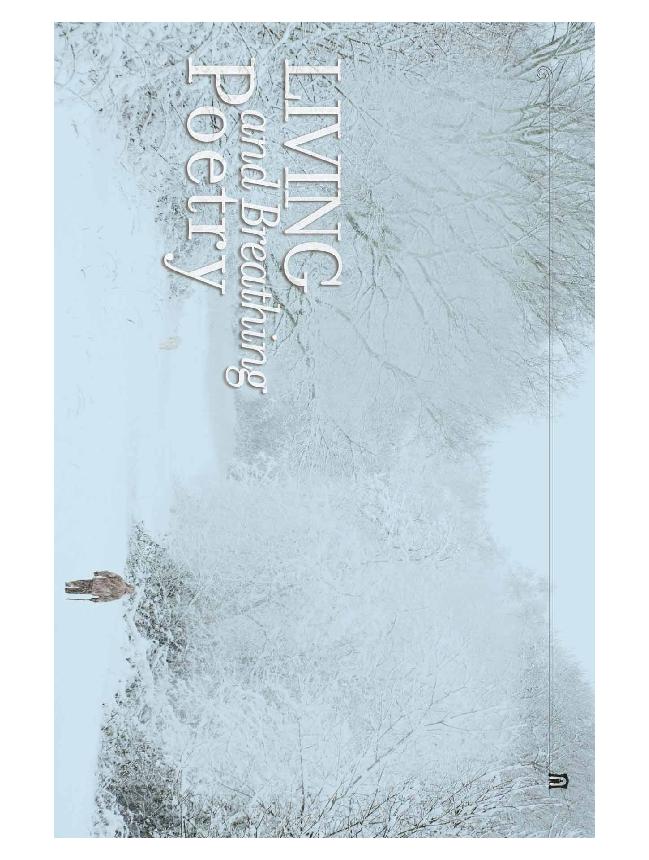
does goes on without it for many people,
but the texture of life would be lost," says
Phillips, professor of English and of African
and African American studies, and a faculty
member in the Writing Program. "If we
didn't have poetry, we would exist, but
something would be missing."
he published his tenth collection of poems,
Speak Low -- his latest National Book Award
contender. An earlier volume, The Rest of
Love, won the prestigious Theodore
Roethke Memorial Foundation Poetry
Prize, while The Tether won the coveted
Kingsley Tufts Poetry Award in 2002.
poetry workshop and sometimes courses
in the Interdisciplinary Project in the
Humanities, a sequence for students
seeking honors in Arts & Sciences. In the
classroom, he often draws upon his broad
knowledge of the classics, gained during
his undergraduate years at Harvard and the
decade he spent teaching Latin at secondary
schools before becoming a writer.
next poem. "Whatever you're reading or
listening to, you never know how it is going
to figure in, because poems come from
experience and everything should count,"
he says. "When students worry that they
are wasting time -- they didn't write this
weekend -- I tell them: `You lived, you
thought, you felt...'"
finalist for the National Book Award --
Carl Phillips often receives fan letters. One
favorite came from a woman whose son's
mysterious illness had robbed him of
speech; she hoped that reading poetry,
particularly Phillips' poem, "A Mathematics
of Breathing," might help her breathe in
and out, continue living -- and get through
this terrible time.
poetry, song lyrics and the arts in general
can do for us all, Phillips says. They let us
explore feelings we aren't able to articulate;
they give us emotional strength in times of
crisis and help us make sense of adversity.
his white dog, for example, became a well-
known poem in which the narrator releases
his white dog into the world, knowing she
will disappear. Some readers were aghast
that he would dream of letting an animal go.
But he intended the dog -- in real life, still
his beloved pet -- as a metaphor for difficult
life choices.
to be released rather than, in a sense,
stained by all the other parts," he says.
"At the end the speaker knows that,
if he lets the dog go, she won't come back,
and he still lets her go. It's the idea of
releasing the good part of oneself because
it is too much at odds with the demons."
convention versus personal authenticity.
What happens when our lives diverge from
ordinary patterns of social behavior?
This question resonates strongly with
Phillips, he says, because he is both gay
and bi-racial.
whether in terms of race, sexuality or even
age. Who's to say that, if you're 50, you
shouldn't go out and play pool if you want
to?" says Phillips, who turned 50 last
summer. "Yet there are people who would
say, `oh, grow up and be more mature.'"
William Shakespeare came back to the theme
of love again and again. And all of us find that
our perspective on love and loss, happiness and
despair, changes as we get older.
Citation for the 1998 National Book Award
put it, "Carl Phillips' passionate and lyrical
poems read like prayers, with a prayer's
hesitations, its desire to be utterly accurate,
its occasional flowing outbursts."
way of abandoning yourself up to something
you believe exists and that seems a form of
prayer, even though I don't think of myself as
a religious poet or even a religious person."
poetry output is higher than in summers,
despite his increased commitments.
He draws inspiration from his students,
whose fresh insights are always exciting.
writing makes me turn to my own writing
and ask myself, `What if I thought about
language a little differently from the way
I've gotten used to thinking about it?'
Or in reading a scene from the Aeneid,
inevitably someone will see something
that I've never seen after all these years,"
he says. "And I love watching someone
discover, say, the Iliad for the first time.
There is something really magical about
all these things. For me, that's where
inspiration often begins."
DOG INTO THE WORLD